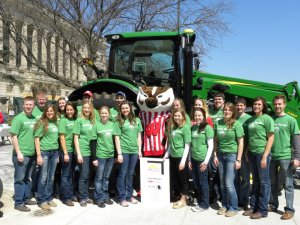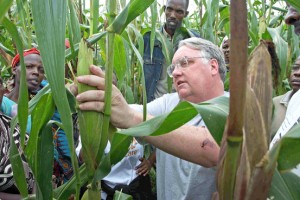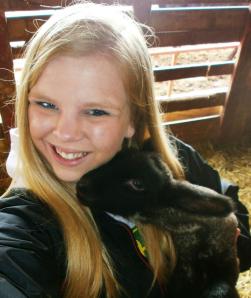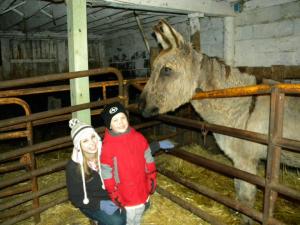As a student on the University of Wisconsin–Madison campus, I see signs everywhere supporting and promoting the views of a diverse culture of students and staff. Signs supporting marriage rights and views, signs promoting a broad range of events, and signs asking people to join a vast network of clubs and organizations plaster our campus.
However, it isn’t too often I see signs supporting agriculture.
The students in the College of Agricultural and Life Sciences (CALS) are working to change this. During the fall semester, Badger Dairy Club promoted the dairy industry by broadcasting images of Alice in Dairyland along with information about chocolate milk as a recovery drink on TV’s across campus. This spring, students are celebrating agriculture in numerous ways as well. CALS has dedicated a special week in April to celebrate the diversity of agriculture and educate our peers. During CALS Week, numerous events such as CALS Day for Kids, Breakfast on the Farm and Ag Day on Campus will take place.
CALS Week kicks off with the Association of Women in Agriculture’s annual Breakfast on the Farm. Held on April 14 at the Stock Pavilion, the breakfast attracts around 1,000 visitors for a country-style breakfast, entertainment and agriculture education exhibits.
Later in the week, on Tuesday, April 16, Collegiate Farm Bureau and the CALS Student Association are hosting Terry Fleck from the Center for Food Integrity who will be speaking to a diverse group about the importance of open communication between consumers and producers.
CALS Day for Kids, which is held on April 17, hosts multiple elementary-age students at the Stock Pavilion to learn about agriculture. The following week, on April 24, Ag Day on Campus will take place on Library Mall. This high traffic area on campus will house a tractor, educational signs, free food made from products grown in Wisconsin, and many enthusiastic students ready to share their agricultural stories. Each of the events will begin to open doors between farmers and the dinner table.
Sharing the importance of technology and innovation in agriculture and our own agricultural stories is a vital part of our job as producers and agriculturists. If we don’t tell our story, somebody else will tell it for us. Often the people who decide to tell OUR story aren’t involved in agriculture and portray agriculture production negatively.
Engage in agricultural education through the planning of an agriculture event, attend one of the multiple breakfasts on the farm, post something educational on a social media site, engage in current social media movements, or simply start a conversation with someone unfamiliar with agriculture. Education is an essential piece in consumer acceptance of agricultural technology.
Students at UW-Madison are excited to take an active role in educating consumers. I hope you will join us in this agriculture education movement.



